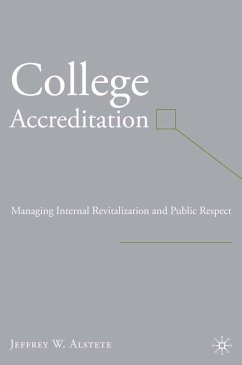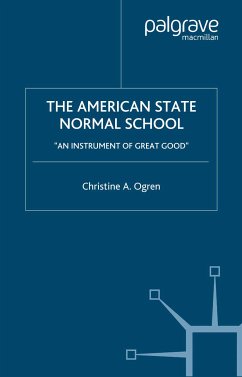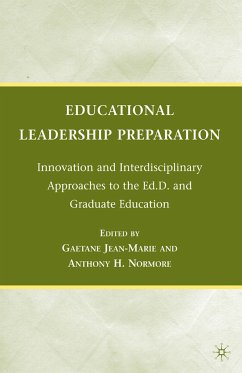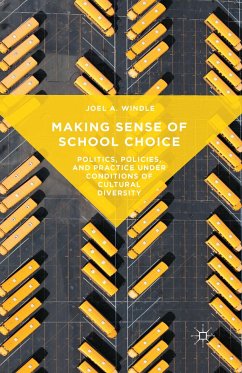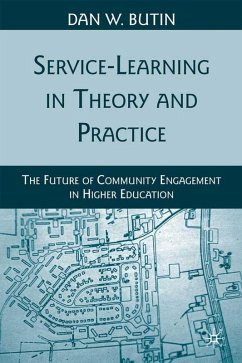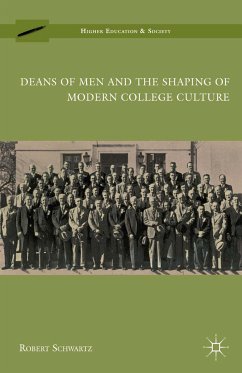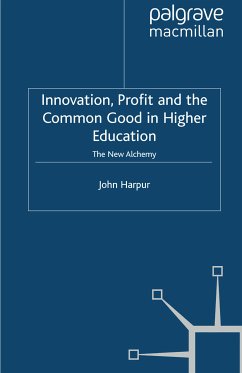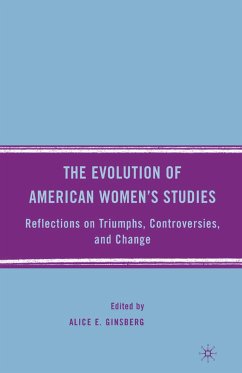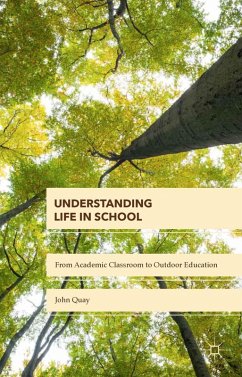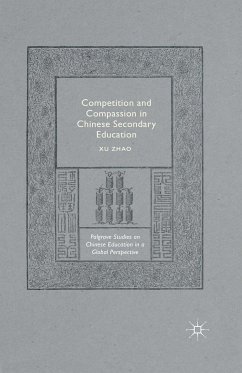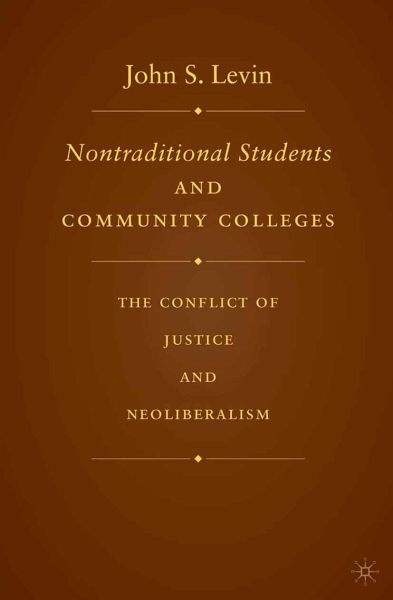
J. Levin
eBook, PDF
Nontraditional Students and Community Colleges (eBook, PDF)
The Conflict of Justice and Neoliberalism

PAYBACK Punkte
20 °P sammeln!






Focusing on non-traditional students in higher education institutions, this new book from renowned scholar John Levin examines the extent to which community college students receive justice both within their institution and as an outcome of their education.
Dieser Download kann aus rechtlichen Gründen nur mit Rechnungsadresse in A, B, BG, CY, CZ, D, DK, EW, E, FIN, F, GR, HR, H, IRL, I, LT, L, LR, M, NL, PL, P, R, S, SLO, SK ausgeliefert werden.
- Geräte: PC
- ohne Kopierschutz
- eBook Hilfe
- Größe: 1.79MB
- Text-to-Speech
- E-Mail des Verlags für Barrierefreiheitsfragen: accessibilitysupport@springernature.com
- Keine Einschränkung der Vorlesefunktionen, außer bei spezifischen Ausnahmen
- Keine oder unzureichende Informationen zur Barrierefreiheit
John S. Levin is the Bank of America Professor of Educational Leadership and the Director and Principal Investigator, California Community College Collaborative at the University of California, Riverside, USA.
Produktdetails
- Verlag: Palgrave Macmillan US
- Seitenzahl: 270
- Erscheinungstermin: 3. September 2007
- Englisch
- ISBN-13: 9780230607286
- Artikelnr.: 38170160
"Levin makes a meaningful contribution to the literature regarding nontraditional students and community colleges in particular and illuminates how neoliberalism is threatening education in general. This book deserves an audience in higher education, student affairs, and other curricula where professionals are learning about the needs of nontraditional students, history and philosophy of community colleges, or how contemporary political issues influence the fundamental purposes of education." - Canadian Journal of Higher Education
"In Nontraditional Students and Community Colleges, Levin gives voice to the students most predominantly served by America's community colleges. He highlights the efforts of dedicated faculty and leaders
"In Nontraditional Students and Community Colleges, Levin gives voice to the students most predominantly served by America's community colleges. He highlights the efforts of dedicated faculty and leaders
Mehr anzeigen
of the colleges to serve the best interests of these non-traditional students despite social policies that often act in opposition. This book is well grounded in field-based research and should be essential reading for those who care about justice and fairness for those who are less privileged the very students who attend community colleges." - George R. Boggs, President and CEO, American Association of Community Colleges
"This splendid study is essential reading for anyone who would understand the struggle faced by disadvantaged students, most of whom depend on community colleges for further education. Levin's work, based on sound conceptual theory and detailed interview findings, joins the relatively modest literature of quality that provides valuable insight into the successes and failures of this vital segment of American higher education." - David W. Breneman, University Professor and Dean, Newton and Rita Meyers Professor in Economics of Education, University of Virginia, USA
"Written by a scholar knowledgeable about community colleges, this book takes a unique approach. The author contrasts neo-liberalism, defined as ascribing responsibility for poverty with the individual and with social justice, which is fairness and the equalizing of advantage, and describes how community colleges are the educational sites where the two conflicts are played out. " - Arthur M. Cohen, Emeritus Professor, University of California, Los Angeles, USA
"Levin's Nontraditional Students and Community Colleges provides a solid foundation for further research. Levin's extensive use of interviews with students, administrators, and faculty provides practitioners with contextualized, anecdotal data about the specific needs of nontraditional students. Investigators will have a deeper understanding of the struggles of nontraditional students in community colleges, and the ways in which autonomous agents can foster the ideal of justice within these institutions." - UPDATE on Research and Leadership
"This splendid study is essential reading for anyone who would understand the struggle faced by disadvantaged students, most of whom depend on community colleges for further education. Levin's work, based on sound conceptual theory and detailed interview findings, joins the relatively modest literature of quality that provides valuable insight into the successes and failures of this vital segment of American higher education." - David W. Breneman, University Professor and Dean, Newton and Rita Meyers Professor in Economics of Education, University of Virginia, USA
"Written by a scholar knowledgeable about community colleges, this book takes a unique approach. The author contrasts neo-liberalism, defined as ascribing responsibility for poverty with the individual and with social justice, which is fairness and the equalizing of advantage, and describes how community colleges are the educational sites where the two conflicts are played out. " - Arthur M. Cohen, Emeritus Professor, University of California, Los Angeles, USA
"Levin's Nontraditional Students and Community Colleges provides a solid foundation for further research. Levin's extensive use of interviews with students, administrators, and faculty provides practitioners with contextualized, anecdotal data about the specific needs of nontraditional students. Investigators will have a deeper understanding of the struggles of nontraditional students in community colleges, and the ways in which autonomous agents can foster the ideal of justice within these institutions." - UPDATE on Research and Leadership
Schließen
Für dieses Produkt wurde noch keine Bewertung abgegeben. Wir würden uns sehr freuen, wenn du die erste Bewertung schreibst!
Eine Bewertung schreiben
Eine Bewertung schreiben
Andere Kunden interessierten sich für


